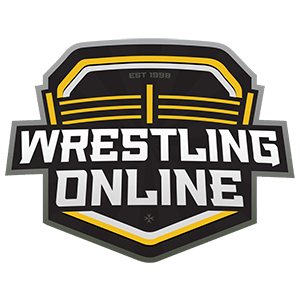In a perfect world, athletes would be judged solely based on their performance, but in reality, this is often not the case. It’s a well-known fact that any unusual sexual preference can significantly affect a young athlete’s career path, particularly in sports like wrestling. Professional wrestling’s exaggerated machismo is perceived as a direct conflict with traits usually associated with gay or lesbian orientation. In such an environment, LGBT individuals have many problems expressing their true opinions and conforming to their expectations. Taking into account their in-ring ability, impact on the sport, and success, LesbieMates experts say that LGBT wrestlers are no less worthy of respect than others.
LGBT discrimination and the impact on sports
Of course, discrimination against LGBT individuals is still widespread in society, even if it’s slowly disappearing from the workplace. The sports industry has been a bastion of obsolete views in this regard, as it’s largely based on the cult of the body and caters to an audience that mostly prefers to stick to stereotypical representations of what it means to be gay. In effect, LGBT athletes are very mindful of coming out prematurely and careful not to alienate their fans and/or sponsors. Some try to repress their inner feelings, while others adopt coping mechanisms designed to hide their same-sex preference. In either case, the individual is isolated from the rest of his environment and subjected to enormous pressure while being required to continue performing at an elite level.
How wrestlers can deal with loneliness
Professional wrestling is mostly an individual sport, and many wrestlers lack the support of teammates that means so much for LGBT people who play team sports. This state of affairs can increase their isolation to the point where it starts having a detrimental impact on their psychological health, let alone their ability to win wrestling matches. The fact that WWE wrestlers invent stage personas is not helpful and can deepen the internal split without bringing the person closer to a resolution. In such a difficult position, wrestlers need a great support network that can include family members, friends, emotional partners, as well as colleagues who know the truth. Those people can affirm the wrestler’s true beliefs, ease the burden of playing a role, and eventually contribute to the decision to come out. Wrestlers who are not surrounded by supportive people are at serious risk of developing depression or other psychological problems and need to find new outlets to release some accumulated anger and confusion.
Examples of famous LGBT wrestlers
Despite serious incentives to stay quiet about their sexual orientation, many popular male and female wrestlers publicly identified as gay or lesbian. Here are a few notable examples:
Pat Patterson
Late wrestling icon is generally considered to be the first openly gay wrestler. His career started in 1958 and lasted for several decades, much of it coming after his revelation that he prefers male company. While this fact was widely known in the business, it wasn’t mentioned in the WWE broadcasts or included in any storylines until shortly before Patterson’s death. Regardless, his courage to speak out in an era when LGBT orientation was much less acceptable than today serves as a beacon to many young wrestlers struggling with a decision to come out today.
Daria Berenato
This American wrestler is known under the moniker ‘Sonya Deville’, but she also bears the distinction of being the first openly lesbian fighter in the WWE. Her career started in 2015 and included numerous appearances in high-profile events, including as a part of the Fire and Desire tag team. Lately, she crossed over into mixed martial arts, so she continues to break barriers and prove that LGBT people have a place even in the most physical of sports.
Darren Young
As one of the biggest WWE stars of his generation, Darren Young turned many heads in 2013 when he publically said he is gay while still actively performing for the promotion. While his announcement made big news, it seemingly didn’t derail his career in any meaningful way, as he continues to make solo and team appearances. His story illustrates that the wrestling world’s conditions are slowly changing to the benefit of gay athletes.
Chris Kanyon
The question of sexuality followed this wrestler while he was still alive and remains unclear to this day. While he claimed to be heterosexual during most of his career that lasted from 1992 to 2007, late during this period, he started performing stunts that presented him as gay. He later clarified that he was, in fact, gay, but the back and forth manner in which he discussed this issue is indicative of the pressures that Chris Kanyon dealt with.
Discover more from Wrestling-Online.com
Subscribe to get the latest posts sent to your email.
